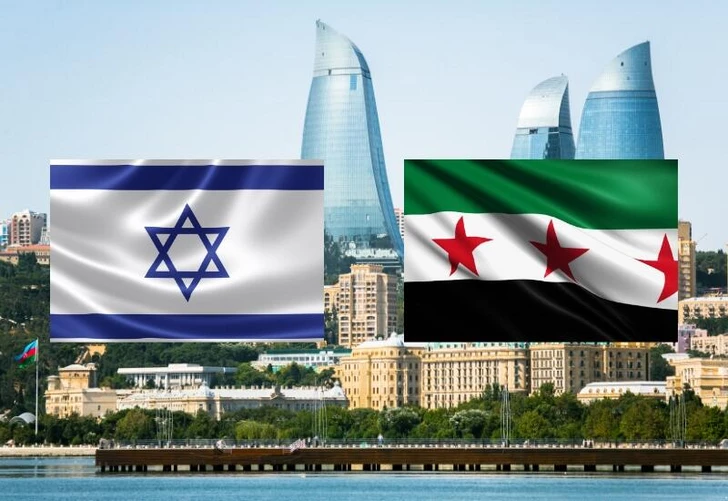BAKU, July 25, 2025 — Another round of Syria-Israel negotiations is set to take place in Baku, signaling Azerbaijan’s growing role in global diplomacy. According to Saudi outlet Al-Hadath, an Israeli delegation will arrive in the Azerbaijani capital to finalize agreements with Syrian counterparts.
The first direct meeting between the two sides occurred on July 13 in Baku, reportedly addressing Israel’s new military posture in Syria. Days later, Hikmet Hajiyev, Foreign Policy Advisor to the Azerbaijani President, confirmed the talks: “We can officially confirm that negotiations between Israel and Syria took place in Baku. Azerbaijan is ready to serve as a bridge for peace and regional stability.”
A New Chapter in Azerbaijani Diplomacy
Speaking to Media.az, Georgian Middle East expert Vasili Papava noted that Azerbaijan has stepped beyond its traditional role as a regional actor in the South Caucasus, increasingly positioning itself as a platform for high-stakes negotiations.

“The Syria-Israel talks in Baku highlight Azerbaijan’s ambitions to be seen as a neutral venue for dialogue between adversaries,” said Papava. “Azerbaijan’s Muslim identity, paired with its strong ties to both the West and key regional powers like Turkey and Israel, gives it unique leverage.”
He emphasized that this diplomatic role is not new for Baku, which has previously facilitated discussions related to the Russia-Ukraine conflict and major energy partnerships. However, the Syria-Israel track raises Azerbaijan’s profile further, especially given its military successes in the 2020 Karabakh war and the subsequent restoration of territorial control.
Why Baku? Strategic Appeal and Pragmatism
Papava outlined several reasons why both Israel and Syria view Azerbaijan as a suitable host:
Trust with Israel: Azerbaijan is a key energy supplier to Israel and a major purchaser of Israeli defense technology, including drones crucial to its 2020 military campaign.
Neutrality and Outreach to Syria: Despite past tensions, Baku has engaged with Syria’s transitional leadership following the fall of Bashar al-Assad in late 2024. The July 12 visit of Syria’s interim president Ahmad al-Sharaa to Baku — during which a gas export memorandum was signed — marked a turning point.
Location and Credibility: Geographically bridging Europe and Asia, Azerbaijan offers a politically neutral and logistically convenient site. Support from Turkey, an ally to both Baku and one of the negotiating sides, reinforces Azerbaijan’s legitimacy.
Diplomatic Branding: By hosting such sensitive negotiations, Baku enhances its image as an open, stable, and secure international platform.
Short- and Long-Term Benefits
According to Papava, Azerbaijan gains more than prestige. The hosting of talks could lead to tangible economic opportunities — such as new energy export routes and regional infrastructure partnerships — and strengthen Baku’s hand in global organizations.
He also noted that mediation deepens Azerbaijan’s strategic ties with Israel and Turkey, which can serve as counterweights to Iranian influence in the region. Engagement with Syria further minimizes regional risk and expands Azerbaijan’s diplomatic reach.
Domestically, such international visibility reinforces the government’s standing and public approval, Papava added.
The Road Ahead
Papava concluded that Azerbaijan is well-positioned to become a permanent venue for international mediation — especially concerning the Middle East and post-Soviet space. But this role requires continued neutrality, internal stability, and careful navigation of competing global interests.
“With its proven ability to ensure confidentiality and high-level security, Azerbaijan has what it takes to become a trusted facilitator of global diplomacy,” he said.


